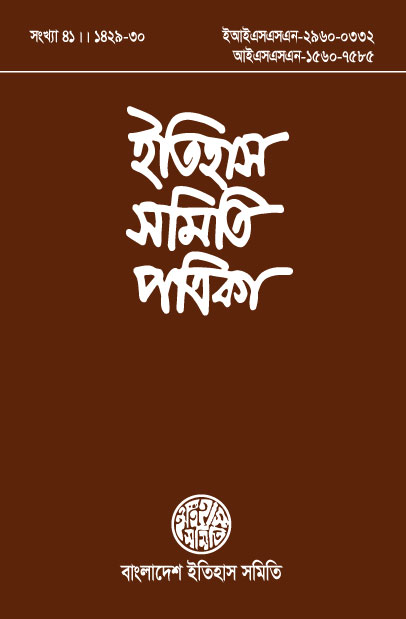বাংলাদেশের চিংড়ি-শিল্প: পরিপ্রেক্ষিত কক্সবাজার

বাংলাদেশের চিংড়ি-শিল্প: পরিপ্রেক্ষিত কক্সবাজার
কানিজ ফাতেমা
সহকারী অধ্যাপক, ইতিহাস বিভাগ, চট্টগ্রাম বিশ্ববিদ্যালয়
Abstract: Cox's Bazar has been an economically prosperous area since time immemorial. Its natural resources, forest resources, mineral resources, and fisheries resources play an important role in the national economy. Apart from various cottage industries including bamboo and cane craft, clay craft, shell craft, salt industry, handicrafts, the shrimp industry is a significant industry in Cox's Bazar. It is possible to earn foreign currency and increase rural employment at a notable rate through exports from the various sectors of the post-independence country among which the fisheries sector, especially the coastal shrimp resource is one of them. The high-quality shrimp from Cox's Bazar is meeting the country's demand and earning billions of dollars in foreign currency through exports. The fisheries sector is the second major foreign currency earner after the ready-made garment industry, the majority of which comes from the shrimp industry. Due to the increasing demand for shrimp in the international market, shrimp farming has significantly changed the economic activities of coastal areas over the past few decades and has been playing a particularly important role in the national economy of Bangladesh. Shrimp is a potentially lucrative industry. However, there are still some limitations to the expansion of this industry. This aspect has been highlighted in this research article. In our national economy the contribution of the shrimp industry, its origin, farming methods, import-export processes, and the necessity of various initiatives for its development have been presented through intensive research, observation, and analysis.
Key Words: Cox's Bazar, Economy, Export-Import, Shrimp Industry, Geographical Indicator (GI).
VIEW FULL ARTICLES


